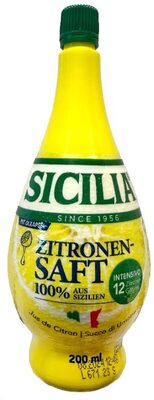
Barcode: 76106897
Zitronensaft
HALAL
📝 Reason: Based on the listed ingredients (lemon juice concentrate, lemon oil, potassium metabisulfite/E224) and cross-referencing with Halal, Haram, and Doubtful E-Code lists, there are no Haram or Doubtful substances. All ingredients are plant-derived or synthetically made with clear Halal status. IFANCA, Quran 5:3 (forbidding only particular substances), and major additive lists support this finding.
🏷️ Category: Beverages And Beverages Preparations, Plant Based Foods And Beverages, Beverages, Plant Based Beverages, Fruit Based Beverages, Juices And Nectars, Fruit Juices, Lemon Juice
📄 Certificates: Vegetarian, Vitamin C Source, Vegetarisch, Vegan
Ingredients:
Details
Understanding the Halal Status of Zitronensaft
In today’s diverse food landscape, many consumers are conscious about the Halal status of the foods and beverages they consume. One popular product is Zitronensaft, or lemon juice. But is Zitronensaft Halal? Let’s dive deep into its ingredients, E-numbers, and certification to clarify its Halal status.
Halal Status Overview
Zitronensaft has been classified as HALAL. Based on the listed ingredients: lemon juice from concentrate, lemon oil, and potassium metabisulfite (E224), a thorough examination shows that there are no Haram (forbidden) or doubtful components present. All ingredients are plant-derived or synthetically processed with clear Halal status, conforming to dietary laws found in Quran 5:3.
Ingredient Breakdown
Let’s take a closer look at each ingredient in Zitronensaft:
Lemon Juice from Concentrate
Lemon juice from concentrate is made by extracting fresh juice from lemons, concentrating it by removing water, and then reconstituting it before packaging. This process is entirely plant-based and does not involve any animal by-products, alcohol, or potentially Haram processing. This ingredient is recognized as Halal and is beneficial for health due to its high Vitamin C content. For more details, you can visit Food Network or IFANCA.
Lemon Oil
Lemon oil is derived from the peel of lemons, making it a natural, plant-based extract. This essential oil is free from any animal products or alcohol, which makes it Halal in standard commercial production. It’s often used for enhancing flavor and providing natural aroma in various food products. For further information, refer to IFANCA or Healthline.
Potassium Metabisulfite (E224)
Potassium metabisulfite, known as E224, is a synthetic antioxidant and preservative commonly used in many food products, including juices. According to widely accepted Halal authorities and verified Halal E-code lists, E224 is also confirmed to be Halal. Its role is primarily to prevent browning and spoilage, thus extending the shelf life of the juice. For further reading, visit FoodChem and Halal HMC.
Certification and Assurance for Consumers
Aside from the examination of the ingredients, various certifications of Zitronensaft bolster its Halal status. It is certified as Vegetarian, Vegan, and a Vitamin C Source, which adds to its appeal for health-conscious consumers. The thorough review of its ingredients aligns with dietary needs and provides peace of mind to those following a Halal lifestyle.
Conclusion
In conclusion, Zitronensaft is indeed a Halal-friendly beverage option made from pure lemon juice, lemon oil, and a Halal-friendly preservative. The product’s alignment with Halal standards, combined with its refreshing taste and health benefits, makes it a great addition to a variety of diets, especially for those adhering to Halal practices. Whether used in drinks, dressings, or marinades, you can enjoy Zitronensaft without worries about dietary restrictions.
